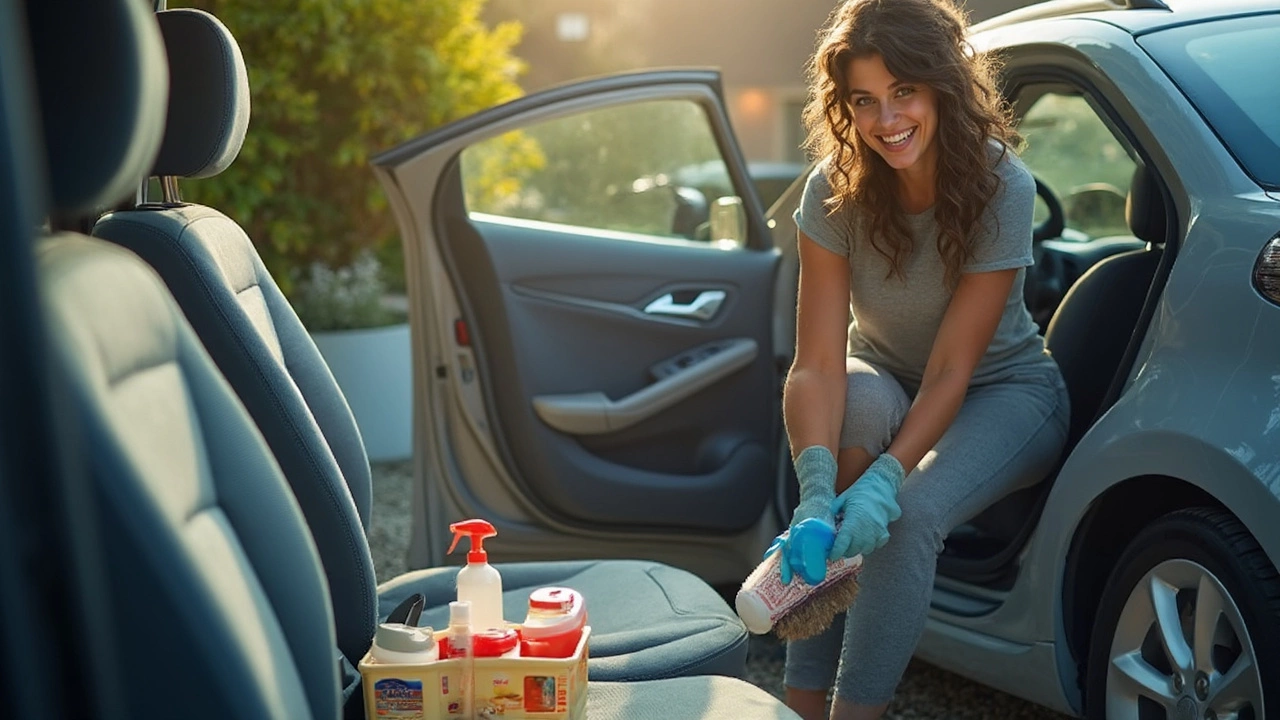Pro Detailing Tips You Can Use Right Now
Ever wonder why some cars always look brand new? It’s not magic – it’s a set of simple habits that pros follow. Below you’ll find the most useful tips for keeping the paint, interiors, and even your business in top shape.
How Often Should You Detail?
Most people think a full detail is only for special occasions. In reality, a good schedule saves money and prevents stubborn stains. Aim for a quick exterior wash every two weeks, a thorough interior clean every month, and a full detail (paint polish, engine bay, deep upholstery) every six months. If you drive in dusty or wet conditions, tighten the schedule – a weekly wash will stop grime from grinding into the clear coat.
Top Interior Products the Pros Swear By
Buying random cleaners won’t give you pro results. For leather, a pH‑balanced conditioner keeps the material supple and prevents cracking. Vinyl loves a mild soap‑water mix followed by a quick wipe‑dry. For fabric seats, a foam‑based cleaner lifts dirt without soaking the carpet. And always finish with a quick spray of a protectant that repels water and UV rays. These three steps keep the cabin smelling fresh and looking new.
Another tip: use a microfiber towel for every surface. It traps dust, leaves no lint, and reduces the chance of tiny scratches on paint or glass. Swap out the towel after a few uses – a dirty towel just spreads grime.
If you’re a professional detailer, pricing can be tricky. Start by tracking every cost – supplies, fuel, travel time – then add a margin that covers taxes and your profit. Most successful shops aim for a 30‑40% profit on each job. Offering bundled services (wash + interior + wax) lets you charge a higher total while the customer feels they’re getting a deal.
Don’t forget the little things that make a big difference. Use a detail brush to clean tight seams, door jambs, and engine bay crevices. A quick blast of compressed air before wiping removes grit that would otherwise scratch surfaces. And a final mist of a water‑based sealant on the paint adds shine and protects against rain spots.
When it comes to equipment, a dual‑action polisher beats a rotary on most jobs. It removes swirl marks without overheating the clear coat. Pair it with a small foam pad for gentle polishing, and switch to a cutting pad only when you need to correct deeper defects.
Finally, maintain your own workspace. Keep your tools organized, label chemicals, and store them at room temperature. A tidy shop reduces mistakes and speeds up each job, which directly improves your bottom line.
Take these tips, test them on one car, and watch the transformation. Consistency is the secret – a few minutes each week add up to a showroom finish that turns heads and drives repeat business.
Want your car's interior to look like it just rolled out of a showroom? This guide breaks down easy and effective steps to detail your car like a professional. You'll learn the best tools, clever tricks to tackle stains and odors, and how to get every surface spotless. From dusty dashboards to hidden cupholder grime, you'll discover tips you can actually use. If you've ever wondered how detailers pull off that 'wow' factor, you'll find out right here.
Want a car interior that feels brand new? This article guides you through pro-level detailing using affordable products at home. Learn practical tips to deep clean seats, carpets, dash, and every tricky spot. Get to know surprising tricks pros use that make a real difference. Discover ways to keep your ride fresh, organized, and looking sharp for months.


